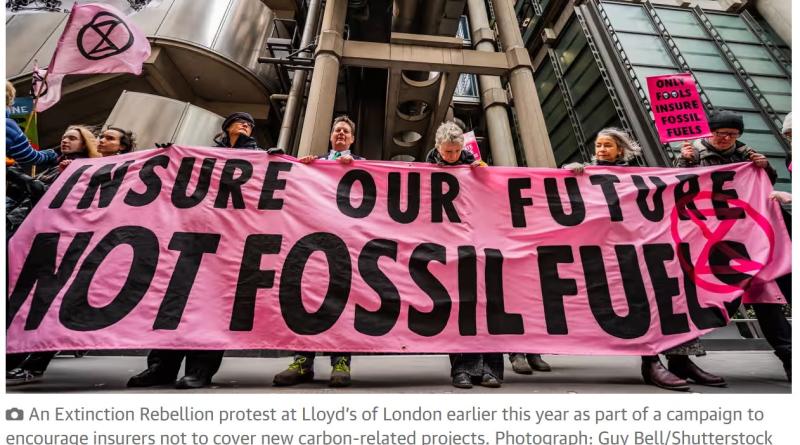‘Reform or go out of business,’ carbon offsetting industry told

The carbon-credit market must reform or “go out of business”, leading scientists have concluded in an international review of the offsetting industry.
The market for carbon offsets shrank dramatically last year after a series of scientific and media reports found many offsetting schemes had little environmental impact.
However, if comprehensively reformed, offsetting could still generate billions of dollars for action on the climate and biodiversity, experts concluded.
The Climate Crisis Advisory Group (CCAG), headed by the former UK chief scientific adviser Sir David King and made up of some of the world’s leading scientists, has produced a new assessment of the voluntary carbon market and how it can rebuild trust.
The unregulated sector should adopt rigorous scientific standards to produce carbon credits, ensure financial benefits were clear to local communities involved with projects, and prioritise carbon-removal projects that suck greenhouse gases out of the atmosphere, the CCAG said.
King said it was clear that there were deep problems with the current system for producing many carbon credits and that unless the voluntary carbon market changed, it would go out of business and be replaced by a system with higher standards.
“The voluntary carbon market is very reluctant to take this fully on board. Our report is totally independent of them. It is going to be challenging, but our simple message is that unless you do this, you’re out of business,” he said. “Trust has been lost and it’s got to be regained.”
In recent weeks, governments and voluntary initiatives have tried to restore confidence in carbon markets after the volume more than halved in a year, falling from $2bn (£1.6bn) to $723m in 2023.
Leading climate and biodiversity researchers, including the University College London professor Mark Maslin and the Chilean biologist Mercedes Bustamante, produced the report. It was funded by Verra, the non-profit organisation that operates the world’s leading carbon standard, though it had no oversight of the findings.
Maslin said: “Be under no illusions: what we are saying is that it is not good at the moment, but we need to fix it.
“It cannot be left up to the industry. There need to be rules and regulations in place; we need it to be much stricter.”
Up to 90% of carbon credits now sold are based on “avoidance” of emissions (such as funding renewable energy, so less fossil fuels are used) rather than actually removing carbon dioxide from the atmosphere. The report recommended a shift to high-quality removals.
“Avoidance is an utter nightmare,” Maslin said. “All of us agree that getting a carbon credit for a renewable energy project in most countries doesn’t make sense because it’s already cheaper.”
Verra’s president and interim chief executive, Judith Simon, said in a statement that the organisation was “proud to support independent research that asks the tough questions” and that “key recommendations endorsed in this report are very much aligned with the many steps we are taking”.
“We entirely agree,” she added, “that carbon credits must be transparent, scientifically sound, and both well-measured and monitored with commitment to the principles of each project.”






